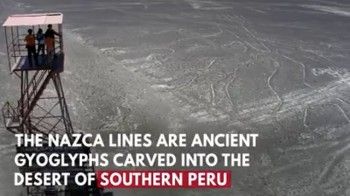In Peru, and here especially in the Andean highlands, August 1 (and actually the entire month of August) is dedicated to Pachamama, next to the sun god Inti, probably the most important and worshipped deity in the Inca culture.
Literally translated pacha means universe, world, earth, land and mama means mother; so Pachamama, also sometimes referred to as Mama Pacha, is the Mother Earth, the Mother of the World or the Earth / World Mother. Today her name is often used referring to Mother Nature.
In Inca tradition, Pachamama is the one with the power to give and preserve or, if she is disrespected, destroy life on earth. She is worshipped as the fertility goddess, who watches over the crops, the sowing and the harvest, but also feared for crop failures and for causing earthquakes.
During Inca times (and even today) people living off the land in the harsh environment of the Andes mountains heavily depended on a rich harvest to survive; so they tried to keep on her right side by respecting nature and the lands they were cultivating, taking only so much from nature as they needed, giving back to Pachamanca with offerings and sacrifices, and worshipping her.
Dedicating the 1st of August to Pachamama and honoring her during the entire month even more than usual is understandable when considering that August is the coldest winter month in the southern hemisphere and a time where the Andean people are most vulnerable. So being on good terms with Pachamama was believed to be essential for survival and protection of crops and livestock. And August as well marked the beginning of the New (agricultural) Year in the Andes, so nothing wrong with doing some groundwork for the coming season.
While rituals to honor Pachamama take place year-round in the Andean regions of Peru, the celebrations for the Day of Pachamama already start on the night before August 1 when families clean their houses and cook all night.
On the Dia de la Pachamama people then either in private with friends and family or in public ceremonies come together and dig a hole in the ground in which they place fruits and veggies, herbs, meat or a part of the dishes prepared the night before, drinks, flowers, coca leaves, sweats and even cigarettes. Everything is then either burnt or just covered with soil as an offering to Pachamama. Often people spill a little of chicha de jora on the ground and drink the rest showing their respect to the goddess.
The offerings and the ancient rituals that are performed during and after the ceremony aim at bringing good luck for the new agricultural year and the goodwill of Pachamama.
In the region of Puno, the celebrations are often combined with the festivities for the National Alpaca Day.





























